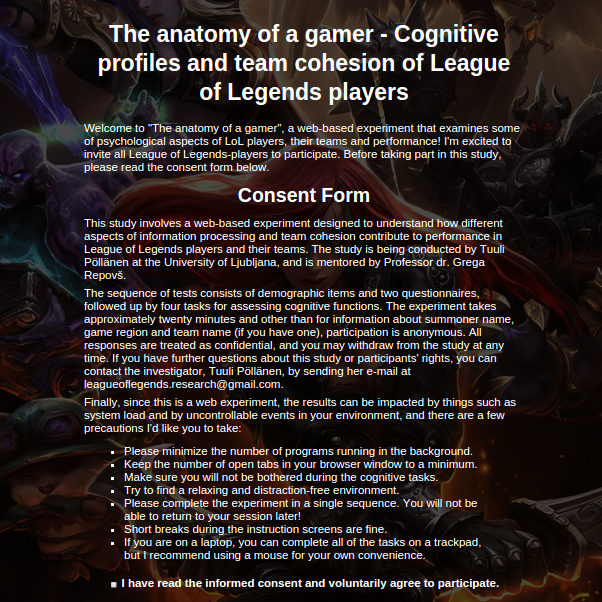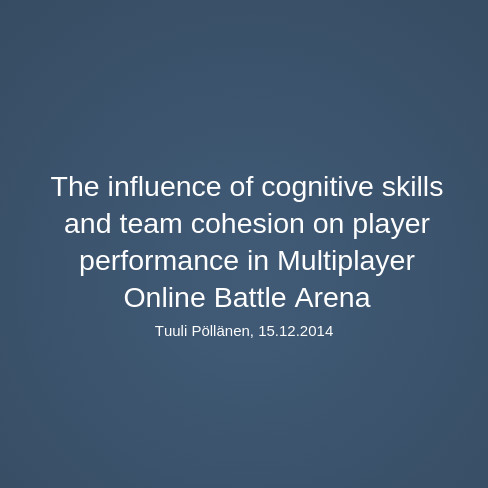February 18, 2015
Lately, I've gotten some requests for a tutorial on deploying jsPsych experiments, so I've committed to writing one. It will be slightly better suited for people with some programming experience, but if you're not familiar with the web and the terminology circulating around the technologies I'm using, please don't be intimidated. My intention for this tutorial is to write a solution that is sufficiently simple so that you should be able to deploy your jsPsych experiment with no previous back end experience.
January 28, 2015
For my previous study, I had a total of 290 participants from a very specific population, in just a few days of open recruitment. The completion rate was over 56%, which is amazing when you consider that the 20-30 minutes of participation consisted of tasks that require constant vigilance and mental effort and were really no walk in the park, and definitely not entertaining. Despite of being meant to assess cognitive skills and team cohesion in MOBA players, the experiment served another purpose - to assess the rate of engagement in what I like to refer to as native experiments.
December 3, 2014
Some participants are excited about your research, but they drop out when they're disappointed with the execution. The first thing you need to do is to polish your user experience to a degree where there is nothing intrinsic to the design that would irritate the user sufficiently to cause them to quit. It is possible that the user will still drop out because the battery is too long or because the task is too difficult, but if they drop out because your instructions are poorly written or because your web page lacks usability, you lose a participant for absolutely no reason.
November 12, 2014
One of the problems cited for web-based experiments is a relatively high rate of participant drop out. In the next three blog posts, we're going to discuss how to minimize drop out and how to maximize participant engagement by using some very simple principles and good habits from product development and customer service. We'll also come up with some more creative ideas on how to keep participants interested and even how to leverage virality to access more participants.
October 30, 2014
Recently, I programmed a set of surveys and cognitive tasks for my master's thesis. For some of the tasks, I used jsPsych - a JavaScript-library for creating web-based experiments, for the back-end I chose Node.js with Express 4.0 and Sequelize. I deployed the experiment on DigitalOceans, and I describe my experience here. If you'd be interested in a series of tutorials on how to deploy jsPsych experiments, throw me an email!
July 30, 2014
Web experiments are excellent for maximizing the scope of a study when it comes to the participant pool. Utilizing web experiments, one can expect very large and diverse samples, which can open doors to addressing hypotheses that simply could not be tested in a lab environment. But as always, this major advantage has to be weighted and considered in light of the shortcomings and challenges of setting up and distributing web-based assessment systems.









